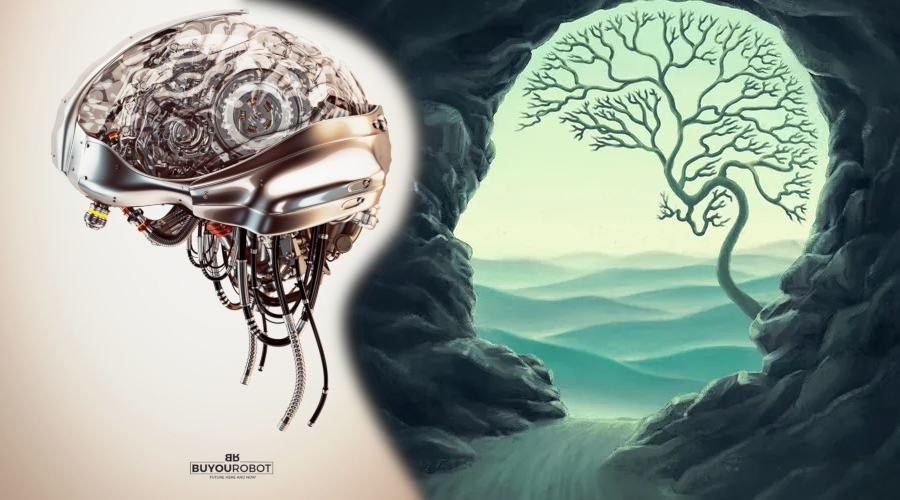We are today mystified by language. This is primarily because as time has marched on, people in general have come to live more abstractly, more symbolically, and have lost sight of the whole from which an abstraction came, or that which a symbol once referenced.
Reason is one of those highly mystified things in modernity. We no longer know what we mean by it, nor how it could mean anything. We don’t even know the meaning of meaning, let alone the meaning of anything else. This is partly the consequence of a mongrelized language which has imported words wholesale from another language instead of developing a word connected to root words in one’s own language. English, and Spanish increasingly, has many such borrowed terms, and a panoply of synonyms from different root languages. The thinking of roots, and what is consequent to them, is often ignored.
I wish to consider here a set of analogies via conceptual structure, motivated by reflections on words via etymology.
The Analogy of Ratio
In common English, a ratio is mathematical, and generally concerns fractions, but in the current era of social media it has returned to reference direct quantity relations of one quantity measured by another (being ratiod). In either sense, the analogy works.
Ratio as fraction concerns a totality constituted and determined as two parts: a numerator and denominator. The denominator is the whole from which the numerator is measured. A mere ratio does not specify any quantity as the privileged measure, but simply sets two quantities in a relation that quantifies them into an implicit fraction. The ratio of 1:4 can be read both as 1 being 1/4th, and as 4 being 4/1s. The whole of the ratio is the entire quantified relation and its parts. A ratio is itself one quantity, and it is plural quantities at once. Reason or rationality is to be minimally understood in this sense. What is rational is a unity through many, a universal through particulars. That which does not have a unity of differences is not a ratio, is not rational, and thus arbitrary or unintelligible. Ontologically, that which is not rational is not a ratio, it has no parts nor forms a whole, and so has no relations, so it is nothing.
The Analogy of Meaning
Meaning belongs to ratio, and ratio belongs to reason. A ratio is itself a mean, the commonality of parts in the ratio, and is also the middle point which unites the parts. Meaning is mediation. To mean is to mediate with purpose, that being the end toward which parts are ordered. What one means is what one intends to express or bring about. What is meant is that which mediates an initial appearance that points back to its meaning. The meaning of meaning, then, is the mediation of mediation, the relation of relation, it is absolute meaning. What does mediation mediate? The immediate, which is self-mediation. In this sense, questions like “What is the meaning of life?” are perfectly intelligible, and have a perfectly clear answer. It is also clear that such meaning is necessarily graspable by reason, and is itself a product of reason as the dynamic structure of being.
It is said that the world is in-itself meaningless, but by the proper understanding of the very meaning of the word ‘meaning’ it is clear that this is false. Meaning does not belong to intentional desire and its values, but to anything which in-itself mediates and is thus mediated, with the highest objective meaning belonging to self-mediating or self-meaning beings, e.g. organisms. Atoms are meaningful in that they are a unity of matters and their specific forces. Matter itself is meaningful as a distinctive spatialized substrate, and time is itself meaningful as the differentiated unity of total spaces with other total spaces. If anything is an object on its own, or simply of cognition, it is necessarily meaningful.
It is incredibly simple to present an intelligible at face definition of reason which is correct and true. All that is lacking in the analogy of ratio and meaning is the dynamism of rationality as evolving or unfolding. In the everyday use of these terms, there is no explicit intention to think of ratio or meaning as dynamic, but with a little reflection we can draw out the link needed. In the question of the meaning of a thing, such as the meaning of life, we are asking for a purpose. A purpose is generally considered as an ordering power outside a thing, with the purposive thing as an instrument for the purpose. Upon little reflection, this is falsified in the concept of purpose. When a thinking being has a purpose, the purpose begins in the mind in potential, and leads the developments needed for its full objective realization. The purpose is not merely one side of the ratio which is formed between the initial means and the directed purpose, it is in fact the whole ratio as such. It is not, however, a static ratio, but is intelligible only as moving itself from the potential to the actual in merely being the rational purpose.
